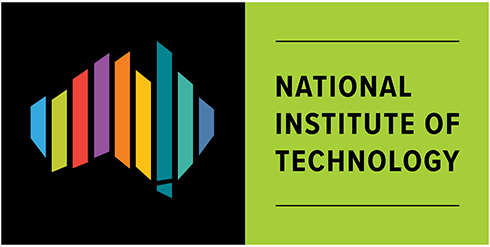
BSB50120
Diploma of Business
If you are seeking entry into business management, looking to establish your own business or setting yourself up for a workplace promotion, NIT’s Diploma of Business is designed to help you stand out and achieve success in your business career.
This course addresses the broad skills needed in many dynamic business environments and covers the key knowledge areas required to operate effectively in the Australian business landscape.
- Duration: 52 Weeks including breaks
- Delivery Mode: Face-to-face (classroom based)
- Location: Perth City
- Course CRICOS Code: 105262E
Course Package
Available
Package Business with Management in Learning for double qualification and double career outcomes.
BSB50120 - Diploma of Business
Course CRICOS Code: 105262E
BSB80120 - Graduate Diploma of Management (Learning)
Course CRICOS Code: 108225H
BSB80120 - Graduate Diploma of Management (Learning)
Course CRICOS Code: 108225H
BSB50120 - Diploma of Business
Course CRICOS Code: 105262E
Course Package
Available
Package Business with Management in Learning for double qualification and double career outcomes.
Package Duration
The duration of both courses packaged together is 104 weeks (2 years).
Package Career Outcome
• Learning and Development Consultant
• Organisational learning and leadership manager
Package Visa Outcome
Students are eligible for Temporary Graduate visa (subclass 485) Graduate Work stream.
Course Overview
If you are seeking entry into business management, looking to establish your own business or setting yourself up for a workplace promotion, NIT’s Diploma of Business is designed to help you stand out and achieve success in your business career.
The content of this course is versatile and applicable to nearly every industry. The course focuses on real-world business practices and it will prepare you in:
- development and implementation of business plans
- identify and evaluate marketing opportunities
- management of business resources
- recruitment and onboarding of team members
- leading workplace communication
- management of business budgets and finances
- business sustainability
- capabilities for problem-solving and critical thinking
This course addresses the broad skills needed in many dynamic business environments and covers the key knowledge areas required to operate effectively in the Australian business landscape.
Career Prospects
Job roles and titles vary across different industry sectors. Possible job titles relevant to this qualification include:
- Business Manager
- Business Services Manager
- Small Business Manager
- Office Manager
Business Managers are leaders who are primarily responsible for the administration and management of a business or organisation. Business Manager roles in Australia were typically advertised between $80k and $130k over the last 3 months*.
* www.seek.com.au/career-advice/ a leading employment search platform in Australia. Accessed on 28 Oct 2021.
Entry Requirements
- Age:
- Domestic students must be 16 years or above at the time of application to study at NIT.
- International students must be 18 years or above before the commencement of study at NIT.
- Academic
- To check the academic entry requirements, refer to the Academic Entry Requirements web page.
- English Language Proficiency
- Overall IELTS band score of 5.5, with no band score less than 5.0; or
- An equivalent score in another English Language Proficiency Test acceptable by the National Institute of Technology; or
- An alternative English language proficiency evidence that is acceptable by the National Institute of Technology.
Click here to check the English language proficiency tests and alternative English language proficiency evidence acceptable by the National Institute of Technology.
Course Structure
To complete this course, a total of 12 units must be completed:
Business Operations
- BSBTWK502 Manage team effectiveness
- BSBOPS501 Manage business resources
- BSBSUS511 Develop workplace policies and procedures for sustainability
- BSBSTR503 Develop organisational policy
Marketing
- BSBMKG541 Identify and evaluate marketing opportunities
Human Resources
- BSBHRM525 Manage recruitment and onboarding
Finance
- BSBFIN501 Manage budgets and financial plans
Cyber Security
- BSBXCS402 Promote workplace cyber security awareness and best practices
Leadership
- BSBCRT511 Develop critical thinking in others
- BSBXCM501 Lead communication in the workplace
- BSBCRT512 Originate and develop concepts
- BSBXTW401 Lead and facilitate a team
Note: Course structure, units and content are subject to change during the delivery period due to a change in legislative requirements or due to NIT’s course review process.
Fees & Intake Dates
An International Student is a person who:
- is not a Citizen or a Permanent Resident of Australia; and
- either holds a valid Australian student visa or intends to apply for an Australian student visa before the commencement of the course.
All international students who intend to study in Australia on a student visa require a Confirmation of Enrolment (CoE). The CoE (Confirmation of Enrolment) is an official document generated via PRISMS (Provider Registration and International Student Management System) that provides important information about your enrolment status. This document is required to be submitted to the Department of Home Affairs before applying for a student visa.
You must have a valid CoE at all times while you are studying on a student visa.
A Domestic Student is a person who is:
- a Citizen of Australia; or
- a Permanent Resident of Australia; or
- a Citizen of New Zealand; or
- a holder of an Australian Visa (other than a Student Visa) that allows them to study in Australia with no limitations on study.
Domestic students do not require a CoE (generated via PRISMS) as they do not need to apply for a student visa. They are provided with an enrolment confirmation from NIT via email, once their enrolment is finalised. Note: If you are a holder of an Australian visa, other than a student visa, you must have sufficient remaining duration on your visa to complete your studies at the National Institute of Technology from the date of your course commencement. Check course durations on the relevant course pages on the NIT’s website.
Important Information
- All students studying at NIT are required to bring their laptops that meets the minimum system requirements specified in NIT’s Bring Your Own Device (BYOD) policy.
- Students also must have access to a high-speed internet connection – broadband wired or wireless (5G/4G/LTE) – Minimum bandwidth requirement is 5/3 Mbps (download/upload speed).
- Students are also required to bring their own notebooks, stationery and USB storage media. NIT may lend laptops to students for on-campus use only based on a first-come-first-served basis.
This course involves a number of learning and assessment methods. Typically, the learning methods may include Presentations and discussions, Demonstrations, Individual and group activities, Skills practice, Role plays, Case studies, Simulated scenarios, and Research activities.
Assessment methods generally include Practical Observation of Tasks, Written or Oral Questioning, Case Studies, Role Plays, Reports, Research Projects, Presentations, etc.
Recognition of Prior Learning (RPL)
If you think that you have already gained the skills and experience for a unit or entire qualification, you can apply for RPL to get recognised as competent for parts or a whole nationally recognised qualification. Not everyone will get credited for their skills and knowledge. Successful applicants will need to demonstrate a reasonable amount of experience in the area their course covers. Contact us to know more about our RPL process.
Before making an application to study at National Institute of Technology, you must read the information provided for International Students in NIT Student Handbook & Policies webpage.
Pathway to Higher Education and Universities
After you graduate from the National Institute of Technology with ICT50220 – Diploma of Information Technology (Advanced Networking) qualification, you will be able to undertake a range of advanced diploma qualifications or an undergraduate degree at tertiary education providers.
You will be able to enter straight into the following Bachelor’s degree program at Murdoch University, Southern Cross University, Sheridan Institute of Higher Education and Edith Cowan University.
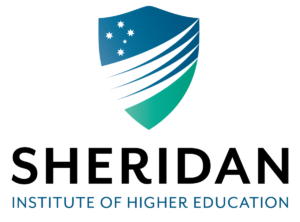
Up to 24 credits points (equivalent to 1.0 year) towards
- Bachelor of Business – Major in Management (24 Credit Points)
- Bachelor of Business – Major in Human Resource Management (18 Credit Points)
- Bachelor of Business – Major in Finance (18 Credit Points)
- Bachelor of Business – Major in Accounting (15 Credit Points)
- Bachelor of Arts – (18 Credit Points)
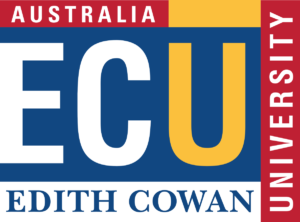
Up to 120 credits points (equivalent to 1.0 year) towards
- W23 Bachelor of Commerce
- Y99 Bachelor of Marketing, Advertising and Public Relations
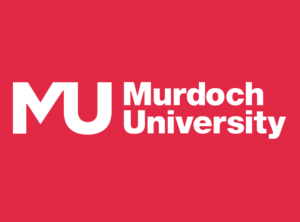
Up to 24 points (equivalent to 1.0 year) credit towards
- Bachelor of Business (B1367) in:
- Management
- Finance
- Human Resource Management
- Accounting (non CPA pathway)
- International Business
- Business Law
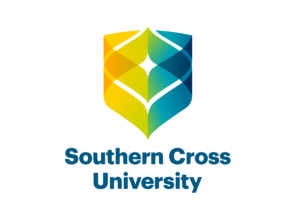
Up to 8 units (equivalent to 1 year) credit
towards
- Bachelor of Business (3002100):
- Credit granted: 8 units, of a total of 24 (33% of the course) – 7 unspecified elective units; 1 specified unit.
- Bachelor of Business and Enterprise (3007150)
- Credit granted: 8 units, of a total of 24 (33% of the course) – 6 unspecified block credit units; 2 specified units.
Note: The duration of the Bachelor’s degree program at the University or Higher Education provider may vary based on the sequencing of the units offered at the University/HE provider.
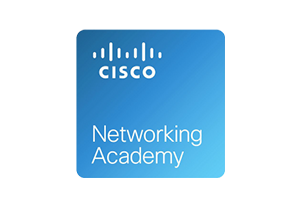



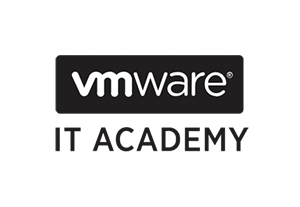
Testimonials
What our students say
about NIT
My experience at NIT has been great. The trainers are always helpful and spot-on when responding to my questions in class, which I ask a lot since I really want to learn networking skills. As a student, I was working as an uber eats delivery driver and in between deliveries,.

I am absolutely satisfied with my choice to join NIT Australia with the Diploma of Information Technology Networking and the upcoming Advanced Diploma of Telecommunications Network Engineering. I believe this is a great start for my career in Australia. Regarding the course structure, it is not only focused on theories but.

Since I started my study program at NIT, I have been developing very important and exciting new skills, such as working with specific equipment and the physical infrastructure of internet connections. Most importantly, all trainers are very knowledgeable and talented, which has been making my experience incredible and unique. I can’t wait to.

I was studying at a different college which I didn’t enjoy and I was scared I may have the same experience at NIT, but it was the opposite when I came here which I am happy about. I never thought I would understand programming but gradually I am gaining more.

I am doing the Advanced Diploma of Telecommunications Network Engineering course to learn more about fibre technologies. Dense Wavelength Division Multiplexing (DWDM) technologies are going to be the future of Telecom. I am learning relevant information about how to manage fibre to complete an entire project using DWDM technologies. The.

I am very happy with the trainers and staff who have shown excellent support and kindness during my studies here at NIT. Elaine, the internship manager, is also working closely with me to prepare for the internship, which is arranged by NIT at no additional cost for IT students. I.


